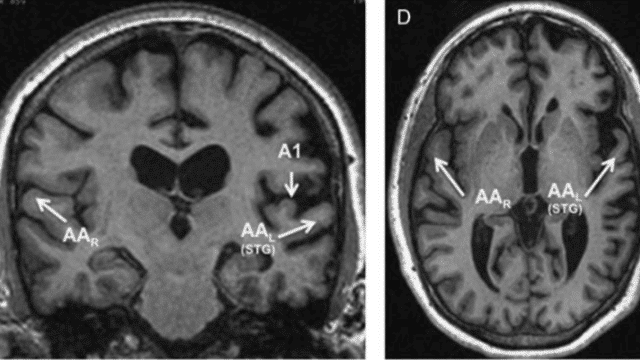PPA Study Identifies Brain Region That Only Processes Speech

A study of individuals with primary progressive aphasia (PPA) revealed a region of the brain that only processes speech – which, when it begins to degenerate, leaves persons diagnosed with PPA unable to comprehend spoken words but able to understand written text.
The study – conducted at Northwestern University and published in Cognitive and Behavioral Neurology – recognized an area in the left brain that affects auditory processing. Persons with PPA often experience speech and language impairment.
Researchers studied four people with confirmed PPA, all of whom displayed a cognitive deficit understanding spoken words but did not have similar difficulties processing written text. For example, they could identify a picture of a hippopotamus when prompted after seeing the word written on a flashcard, but could not identify the animal after hearing the word spoken.
“They had trouble naming it aloud but did not have trouble with visual cues,” said senior author Sandra Weintraub, Ph.D., professor of psychiatry and behavioral sciences and neurology, in an interview with Northwestern Now. “We always think of these degenerative diseases as causing widespread impairment, but in early stages, we’re learning that neurodegenerative disease can be selective with which areas of the brain it attacks.”
First author Marek-Marsel Mesulum, M.D., also a professor at Northwestern, is a member of AFTD’s Medical Advisory Council, as is study researcher Rosa Rademakers, Ph.D. The research team also includes Eileen Bigio, M.D., recipient of AFTD’s inaugural Pilot Grant in FTD research.
Due to the small sample size, researchers cautioned that study results may not be universal. Although further validation is needed, the study authors suggested their findings could promote interventions for patients with spoken comprehension deficits that could privilege written communication over verbal modalities.
Those wishing to learn more about PPA can visit AFTD’s webpage on the condition.
By Category
Our Newsletters
Stay Informed
Sign up now and stay on top of the latest with our newsletter, event alerts, and more…
